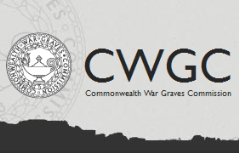 In April 2017 a large group of Scottish secondary school pupils and teachers travelled to France to commemorate the centenary of the Battle of Arras. This battle saw the biggest concentration of Scottish battalions and soldiers at any one battle during WW1, and the Scottish Government identified this as a key event to mark in the national WW1 commemorative programme.
In April 2017 a large group of Scottish secondary school pupils and teachers travelled to France to commemorate the centenary of the Battle of Arras. This battle saw the biggest concentration of Scottish battalions and soldiers at any one battle during WW1, and the Scottish Government identified this as a key event to mark in the national WW1 commemorative programme.
The Scottish Commemoration Panel conceived the unique idea of having two participating pupils from every one of the 32 Scottish Local Authorities undertake a study visit to Arras, and with the support of local Councils achieved this truly national representation. Scottish Government contracted with Mercat Tours International to deliver this experience for the young people, and a very strong programme of activities was organised. The assistance of the Mayor of Arras enabled French pupils to join the commemorations.
The Scottish programme covered three intense days in France and Belgium, with guided visits to battlefield sites, cemeteries, memorials, and a museum in the underground tunnels beneath the city of Arras. A very moving service of commemoration was held at Faubourg d’Amiens cemetery in Arras, and Scottish military pipe bands performed a Beating the Retreat in the main square of the town that evening attended by First Minister Nicola Sturgeon.
The young people learned a great deal about the history of the period and the contribution of Scottish soldiers to the western front campaigns. Frequently there were very moving experiences. Some pupils were able to trace the graves of relatives who died around Arras and make a very personal remembrance at the graveside.
The visit was a great success, and a video which features key elements from the trip will be made available online.
 The
The  Legion Scotland invites you to vote for your choice as the winner in their 2016 competition for Primary school children in Scotland, which invited pupils to make a film about “the impact of conflict and the importance of remembrance”. Voting closes on Sunday 11th December, so don’t delay.. Vote
Legion Scotland invites you to vote for your choice as the winner in their 2016 competition for Primary school children in Scotland, which invited pupils to make a film about “the impact of conflict and the importance of remembrance”. Voting closes on Sunday 11th December, so don’t delay.. Vote 

